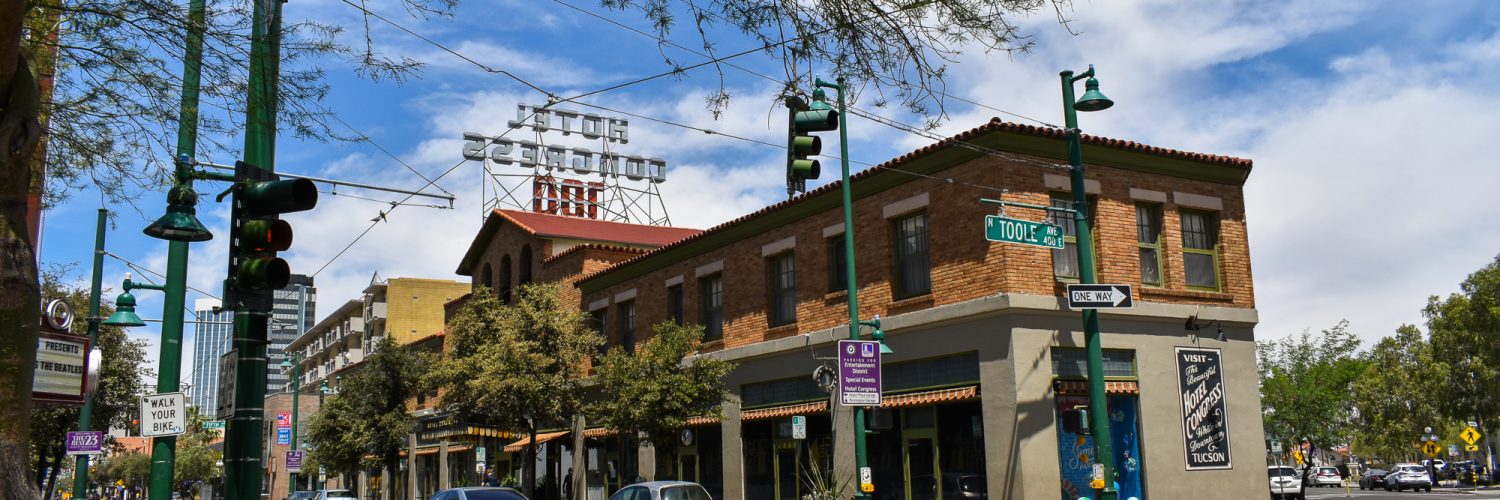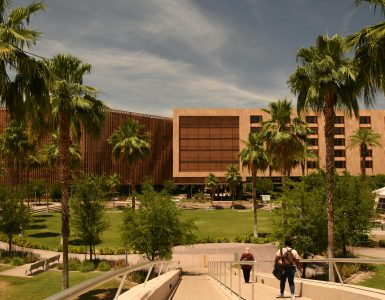Step aside, Silicon Valley; there’s a new tech hub in the desert.
Commercial real estate firm CBRE recently released its 2019 Scoring Tech Talent report, which highlights Tucson at the top of “The Next 25 Markets” where tech companies are seeking operational opportunities.
Over the past five years, the Southern Arizona city has witnessed 90 percent growth in tech jobs, accompanied by a 29 percent growth in tech wages – which is also the highest among the top 25 cities. As of 2018, Tucson maintained 15,700 jobs in tech, aggregating over $90,000 in wages.
“I think that we are building the right ecosystem for tech companies,” Tucson Metro Chamber president and CEO Amber Smith said. “We have a strong venture capitalist community, we have huge partners with the U of A, Tech Parks Arizona, Startup Tucson, and Pima Community College, and each of those entities are collaborating with each other to avoid redundancy while leveraging each other’s skillsets all for the benefits of tech companies.”
Smith cites the University of Arizona’s research groups, optics department, and engineering college as a few of the many divisions that are integral to Tucson’s success as a growing technology hub.
The University of Arizona Science and Technology Park is another crucial resource for the community. As one of the nation’s premier university research parks, the UA Tech Park houses companies developing innovative technology in biosciences, advanced energy, mining, and transportation. Park tenants contribute $1.7 billion annually to the regional economy and provide jobs with wages well above the region’s average rate.
Both veteran and emerging technology companies have chosen Tucson as their home in recent years. Long-standing companies such as Caterpillar and Hexagon chose downtown Tucson as their headquarters, while young firms like TuSimple are using the outer regions of the city to develop their product. In both cases, Tucson has developed an infrastructure to support a wide range of operational necessities.
“Through the evolution and continued evolvement of downtown, we’ve been able to secure these major companies,” Smith said. “With success creates more success, and downtown does have a direct connection to the U of A through the Streetcar. So, talent is able to come out of the U of A and get hired by these companies; it’s like catching a wave right now, and more and more companies are announcing locating here.”
Nevertheless, Local First Arizona director Mike Peel explains that retaining these young companies is equally important as attracting them to the city. Having access to small business loans and additional capital for emerging firms is a crucial municipal technique that Tucson can and should employ, he says.
“We at Local First also ask the question about how we can ensure these successful entrepreneurs are indeed staying in Tucson long-term and that local ownership is fostered as long as possible,” Peel said. “What we want to see from our perspective is that ownership is thriving and there are as many local owners staying in the community that are growing their businesses and are able to have more of an impact in the economy as a result.”
















Add comment